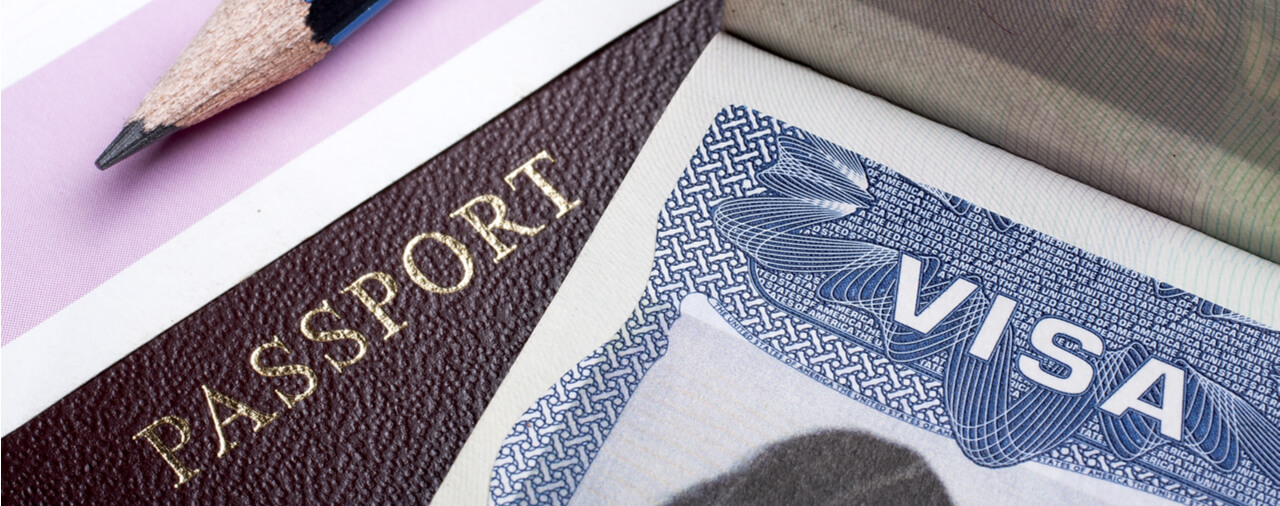DHS Announces Policies for Implementing Changes to the Visa Waiver Program
On January 21, 2016, the Department of Homeland Security (DHS) announced policies to begin implementing the changes to the Visa Waiver Program that were signed into law in December of 2015 [link].1 The law made general changes to the Visa Waiver Program [see my post on the changes]. The DHS policies focus mostly on the provisions of the law restricting the use of the VWP for:
Nationals of Iran, Iraq, Sudan, or Syria
Persons who have traveled to Iran, Iraq, Sudan, or Syria since March 11, 2011 (with limited exceptions for diplomatic or military travel under the official orders of a VWP country)
It is important to note that such individuals are not prohibited from obtaining authorization to enter the United States. Persons barred from using the Visa Waiver Program may still apply for visas.
The law contains a provision that gives the Secretary of Homeland Security discretion to waive the restrictions on nationals and people who have visited Iran, Iraq, Sudan, or Syria if the Secretary determines that such a waiver is in the law enforcement or national security interests of the United States. The DHS explains that such waivers will be granted on a “case-by-case basis.” However, the DHS listed five categories of travelers who may be eligible for waivers “as a general matter.”
Individuals who traveled to Iran, Iraq, Sudan or Syria on behalf of international organizations, regional organizations, and sub-national governments on official duty;
Individuals who traveled to Iran, Iraq, Sudan or Syria on behalf of a humanitarian NGO on official duty;
Individuals who traveled to Iran, Iraq, Sudan or Syria as a journalist for reporting purposes;
Individuals who traveled to Iran for legitimate business-related purposes following the conclusion of the Joint Comprehensive Plan of Action (July 14, 2015); and
Individuals who have traveled to Iraq for legitimate business-related purposes.
It is important to note that people who fall into these categories are not guaranteed waivers. Rather, people who fall under these categories will be considered for waivers as a “general matter.” It is still possible that a person in one of these categories may be denied a discretionary waiver from DHS.
My Thoughts
Back on December 27, 2015, I addressed the controversy over the provisions of the VWP reforms addressing nationals of Iran, Iraq, Sudan, and Syria [see my blog post].
In that post, I stated that the most of the provisions of the law were sound save for its effect on nationals of Iran, Iraq, Sudan, or Syria who have not visited any of those countries recently. The DHS did not address this situation on January 21, but stated: “we will continue to explore whether and how the waivers can be used for dual nationals of Iraq, Syria, Iran and Sudan.” Ultimately, this is an issue for Congress to address, and I hope it considers revisions in the near future.
However, DHS designated five categories that as a “general matter” may be eligible for discretionary waivers of the restrictions in the “law enforcement or national security interests of the United States.”
The category that has received the most attention-and deservedly so-is the inclusion of “[i]ndividuals who traveled to Iran for legitimate business-related purposes following the conclusion of the Joint Comprehensive Plan of Action (June 14, 2015) (better known as the Iran nuclear deal). Back in my December post, I addressed the possibility of such a waiver:
That the Administration decided to enter into a non-binding agreement with Iran without the support of the majority of the Congress or the majority of the American people should not, and does not, give the Iranian government a say in our immigration policy.
Sure enough, my views have not changed now that the administration has lived down to my expectations for it on this issue. To be clear, Iran is included in the Visa Waiver Program restrictions because of its government’s sponsorship of terrorism. Congress created these restrictions based on the idea that nationals of Iran or people who have recently traveled to Iran cannot be properly vetted in the Visa Waiver Program process. Yet, DHS has determined that it has discretionary authority to offer waivers to people traveling to Iran for “legitimate business-related purposes” after an agreement that was never approved by Congress took effect. For my part, I would argue that the law enforcement and national security interests of the United States do not include creating exceptions from U.S. laws for people who are doing business in a country that is arguably the world’s leading sponsor of terrorism, nor do they include giving Iran and the European Union a say in our domestic security policies.
The Hill quotes the author of the bill, Congresswoman Candice Miller of Michigan, released a joint-statement with the House Homeland Security Chairman Michael McCaul of Texas stating:
President Obama is again putting his relationship with Iran’s supreme leader over the security of Americans.” Furthermore, “He cannot rewrite the law to appease foreign governments — he should instead pay attention to his own.2
I concur with Representatives Miller and McCaul. However, it is important to take into account that given the administration’s track record in all things involving Iran and the Iran nuclear deal, its liberal interpretation of the Visa Waiver Program law was hardly unforeseeable. Although Congress clearly did not authorize waivers for people doing business in Iran after the nuclear deal, it is fair to ask why Congress did not think ahead and insert language to limit DHS’s discretion to grant waivers more explicitly.
We cannot neglect the other for categories for which DHS will generally consider exceptions to the Visa Waiver Program bar. While waivers for certain people working for international organizations, humanitarian workers, and journalists seems more reasonable on the surface than do waivers to protect the Iran nuclear deal, it is worth noting that members of Congress wrote letters during the legislation process advocating for language to this effect to be included in the final legislation. Ultimately, language authorizing such waivers was not included. Thus, I find it difficult to believe that waivers may be considered as a “general matter” for people in these categories, regardless of the merits of DHS’s position as a matter of policy.
Based on the law, DHS should weigh waivers on a case-by-case basis and only grant waivers where they legitimately serve a law enforcement or national security objective. If the administration does not like the law that it signed little more than a month ago, it should work with Congress to modify it. However, unless it is modified, DHS is obligated to enforce the law as it is written regardless of whether it comports with the policy preferences of the current administration.
- DHS, “United States Begins Implementation of Changes to the Visa Waiver Program,” (January 21, 2016), available at http://www.dhs.gov/news/2016/01/21/united-states-begins-implementation-changes-visa-waiver-program [link]
- Hattem, Julian, “GOP explodes in anger as feds create Iran carve-out for visas,” The Hill, (Jan 21, 2016), available at http://thehill.com/policy/national-security/266623-gop-explodes-in-anger-as-feds-create-iran-carve-out-for-visas [link]





